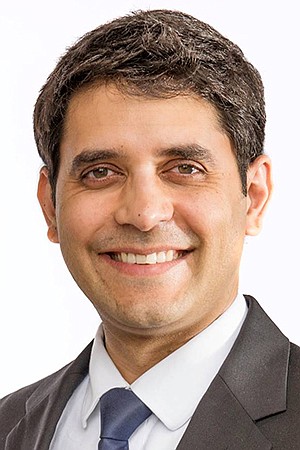Q: A family member has macular degeneration. Will I get it?
A: Age-related macular degeneration is the most common cause of vision loss in people over age 50.
This condition is a chronic, progressive disease of the retina, the light-sensing part of the back of the eye.
With the aging population, millions of people are newly diagnosed every year, and most people know at least one afflicted friend or family member. In fact, a person with a sibling or parent with age-related macular degeneration is 12-27 times more at risk to develop the disease.
While not strictly hereditary, there are certain genes that have been found to be associated with age-related macular degeneration. A genetic predisposition may combine with environmental factors to increase the chance of developing age-related macular degeneration. A person's genes are considered a nonmodifiable risk factor, meaning they cannot be changed.
Genetic testing to screen for age-related macular degeneration risk has not been shown to improve outcomes and is not recommended for routine care.
The best treatment for macular degeneration is early detection.
Everyone over age 50, especially those with a family history of macular degeneration, should get a routine dilated eye examination with their eye doctor.
Devon H. Ghodasra, M.D., is with Southeastern Retina Associates and a member of the Chattanooga-Hamilton County Medical Society.
